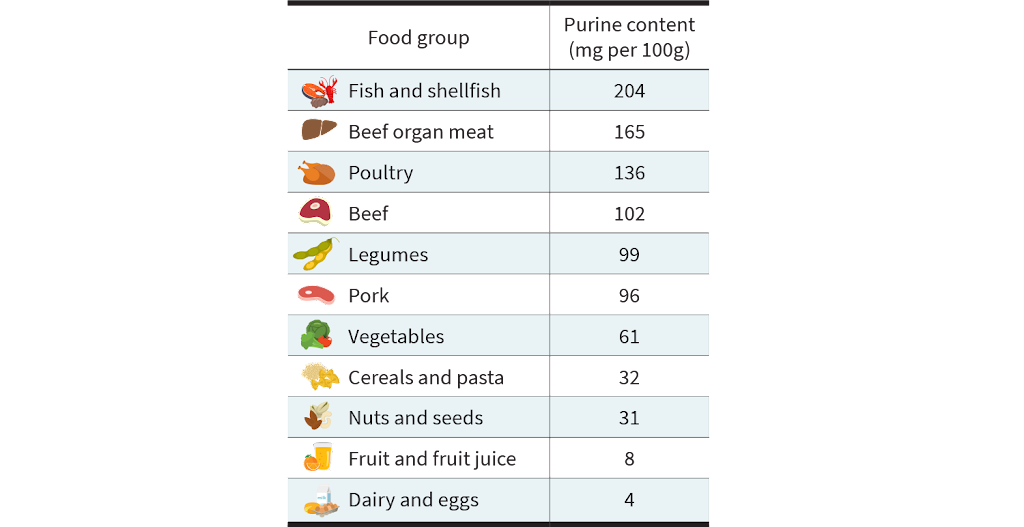A frequent piece of advice for gout is a purine-restricted diet, as purines from the diet are broken down into uric acid and high purine meals tend to increase uric acid levels.[1][2] Purine rich foods include meat (particularly organ meat), fish, and shellfish. Exactly how much purine restriction can lower uric acid levels may depend on baseline purine intake and degree of restriction and unfortunately there is limited well-conducted research on the topic. One study on people with hyperuricemia reported a 0.57 mg/dL drop in uric acid after 2 weeks on a low purine diet, however this study lacked a control group.[3]
To make matters more complicated, there are several types of purines and some evidence indicates they are not all equal in their effects on uric acid levels.[4] Because the amount of each purine type varies between foods, this means two foods might differ in their effect on uric acid even when purine levels are the same. One study, for example, found that the increase in uric acid 2-hours after eating a meal with either haddock (+0.34 mg/dL) or soybeans (+0.32 mg/dL) was greater than after a meal with beef liver (+0.15 mg/dL), despite a similar purine content between the three meals.[1]
Average purine content of food groups



